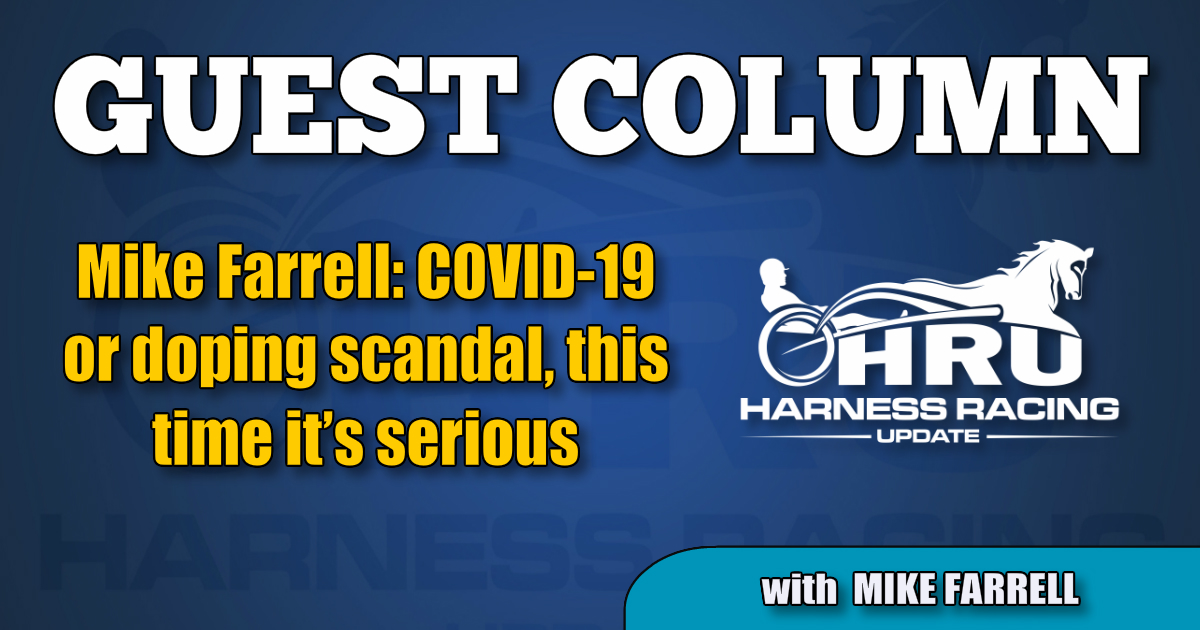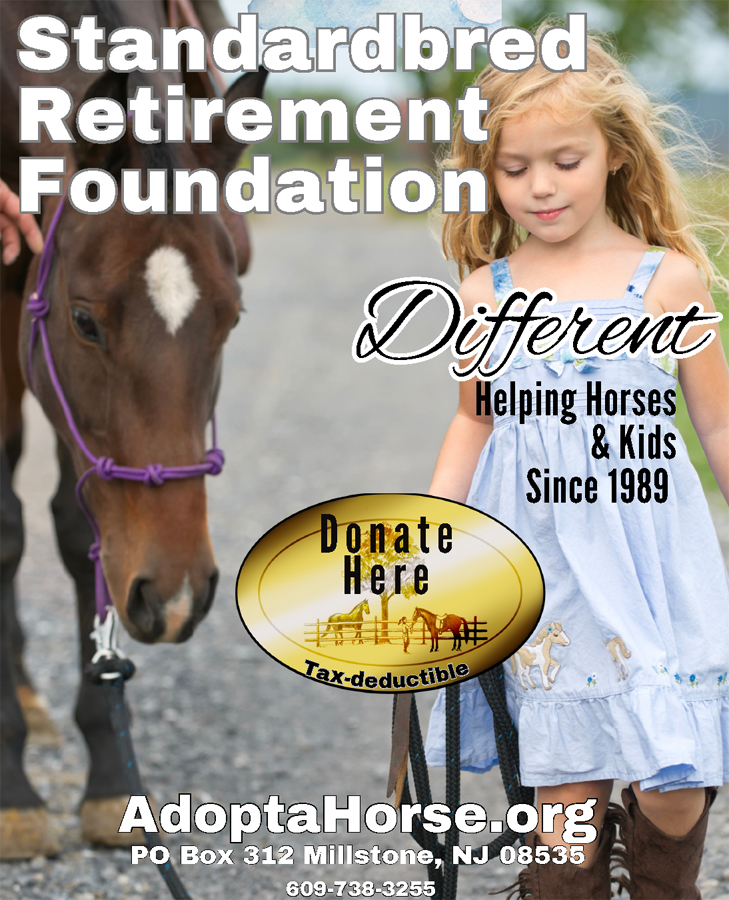Whether COVID-19 or the doping scandal, this time it’s serious
by Mike Farrell
It is a dizzying effort (if you’ll pardon a bad pun in light of the current situation) to track the latest COVID-19 developments.
Which tracks are racing? Are fans allowed in? Which tracks are closed while the coronavirus spreads?
Consider the latest standardbred news from Saturday alone. The public will be banned from Woodbine Mohawk Park and Woodbine Racetrack starting Sunday for a minimum of two weeks while live harness racing and thoroughbred training continues. Freehold Raceway is closing up shop through March 21. Racing is a go in Ohio, minus a live audience. Down south, fans will be welcome at Pompano Park for Sunday night’s card.
It’s a bewildering hodgepodge.
Of course, safety is paramount as we deal with this disease. Efforts to offer racing solely for a simulcast audience are noble, bordering on the heroic.
Writing as a long-time journalist and co-owner of a one-horse stable, I fully appreciate the need to keep purse money flowing. It is the mother’s milk that sustains owners and horsemen and nourishes everyone in the racing food chain.
But is it ultimately the wisest decision to press on?
I think not.
For starters, the optics are terrible. “Important Sports” like Major League Baseball, the National Basketball Association, the National Hockey League, the NCAA, the Masters Golf Tournament have canceled or suspended their seasons. And then there’s horse racing, beating up those poor animals to satisfy greedy owners even in the face of a pandemic.
Misperception often trumps reality.
Let’s consider the reality for a moment. Conducting live racing often involves shipping horses over considerable distances. Even though tracks are limiting access to stables and paddocks only to essential personnel, all movement contradicts the medical guidance to shelter in one place when possible and to observe social distancing of six feet or more.
If even one infected individual accompanies a horse to a track, everyone in that facility faces possible quarantine. And the track could assume massive legal liability if there is a resulting fatality.
Better to let this disease run its course than buck the trend.
There is a second, equally compelling reason, for racing to take a hiatus: the stunning and sickening indictments handed down this week to leading figures in thoroughbred and harness racing (full story here).
The sport — and we’re talking all breeds — needs to regain its collective breath. Shutting down for a brief period would let the fetid dust settle.
There is a silver lining, and a positive message that can be generated from this latest black eye: the charges are criminal, not administrative.
Far too often in the past, penalties for cheaters were administrative, meaning a loss of license and possible fines. Lou Pena in harness racing and Rick Dutrow, Jr. in the thoroughbred game are prominent examples of trainers who suffered administrative justice.
Loss of one’s livelihood is a severe punishment, but the individuals retained their freedom.
That might not be the case in the latest roundup. Everyone will have their day in court to refute the charges. But if convicted, they face possible hard time… trading fancy winner’s circle garb for orange prison jumpsuits.
That’s the message the racing industry needs to proclaim: this time it’s serious. Cheating carries severe consequences. No more slaps on the wrist. No more chasing bad actors from one jurisdiction only to see them pop up elsewhere.
It’s one disease that might finally have a cure.

















